Looking up in the “Dictionary of Vietnamese Proverbs” (Nguyen Duc Duong - Ho Chi Minh City General Publishing House - 2010), I found this sentence in the book, but the author noted that it had “unclear meaning”. Looking up in the “Dictionary of Vietnamese Idioms and Proverbs” (Professor Nguyen Lan - Literature Publishing House, 2016), I found the explanation as “If you are related, you have something in common - He is like his uncle, because his family name is sweet potato, even if it is not itchy, it will still make you nervous!”. Honestly, I still feel “nervous” because this explanation is not very clear. On the other hand, where does this sentence come from?
So, I would like to request the column "Chatting about words" to clearly explain the literal and figurative meanings of the above proverb.
Thank you very much".
Answer: The "potato family" here does not mean sweet potatoes (of the Morning Glory family), but only potato varieties of the Araceae family.
The Araceae family is a family of plants belonging to the Monocotyledon class, including herbaceous plants, with tuberous stems, growing upright or climbing, mainly on land, some species have woody stems. Many plants are grown for their tubers and bracts for food such as Chinese yam, yam, water yam, taro, elephant foot yam; for medicine such as thousand-year-old yam (son thuc); for pig feed (water fern, itchy potato, aralia. Dong Ho folk painting has a very famous picture "Pig eating aralia"). The Araceae family also has ornamental varieties (eternal green vine, flamingo flower, ...).
Non-itchy potato varieties such as taro, elephant foot yam, etc. are harvested for their stems (tầu) as vegetables; while taro, taro, etc. are harvested for their tubers. Although they are called “non-itchy”, in reality, these types of food still have a slight “irritability”, meaning they can cause a slight irritation to the skin or tongue when eaten. As for types like duckweed, in terms of shape, it has nothing in common with elephant foot yam or taro, but according to scientific classification, they are in the same family. And in reality, when scooping or chopping duckweed to feed pigs, people often get itchy hands and feet when in contact.
That is the literal meaning of the proverb. What about the figurative meaning?
The book Dictionary of Vietnamese Idioms and Proverbs (Vu Dung - Vu Thuy Anh - Vu Quang Hao - Culture - Information Publishing House - 2000), section "The potato family is not itchy but also worried", does not explain directly but transfers the note to "The children of the ancestors, if not the hair, are the wings", and explains as "Children of families with traditions and good natures will more or less inherit the beautiful and noble traits of their parents and ancestors".
In fact, although it is the same philosophy and comparison, the saying "A son of a family, if not like the feathers, will also like the wings" is often used with a complimenting meaning: "A son of a family lineage will more or less inherit the good qualities of his ancestors." While "A family of potatoes, if not itchy, will also be troubled" means: "A family of the same lineage, if the nature is not good, then more or less, whether far or near, will still carry a little bit of the characteristics of that lineage (implied criticism), just like the folk song: "Three generations, seven families of potatoes/ Whether sweet or sour, still feel troubled."
Man Nong (CTV)
Source: https://baothanhhoa.vn/ho-nha-khoai-khong-ngua-cung-lan-tan-249959.htm




![[Photo] 12th grade students say goodbye at the closing ceremony, preparing to embark on a new journey](https://vphoto.vietnam.vn/thumb/1200x675/vietnam/resource/IMAGE/2025/5/28/42ac3d300d214e7b8db4a03feeed3f6a)

![[Photo] Vietnamese and Hungarian leaders attend the opening of the exhibition by photographer Bozoky Dezso](https://vphoto.vietnam.vn/thumb/1200x675/vietnam/resource/IMAGE/2025/5/28/b478be84f13042aebc74e077c4756e4b)
![[Photo] General Secretary To Lam works with the Central Policy and Strategy Committee](https://vphoto.vietnam.vn/thumb/1200x675/vietnam/resource/IMAGE/2025/5/28/7b31a656d8a148d4b7e7ca66463a6894)
![[Photo] Prime Minister Pham Minh Chinh receives a bipartisan delegation of US House of Representatives](https://vphoto.vietnam.vn/thumb/1200x675/vietnam/resource/IMAGE/2025/5/28/468e61546b664d3f98dc75f6a3c2c880)




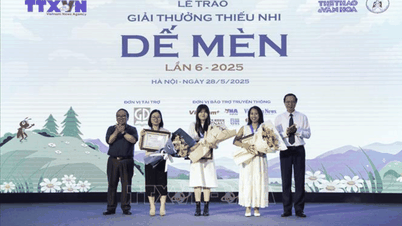









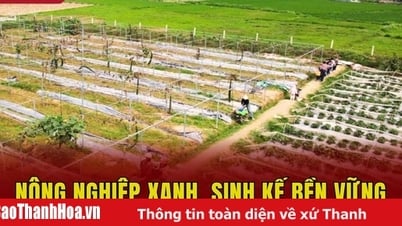




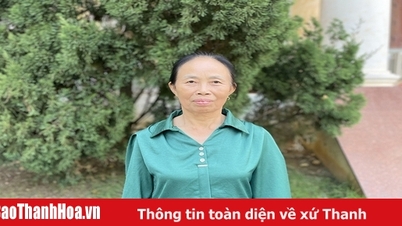






























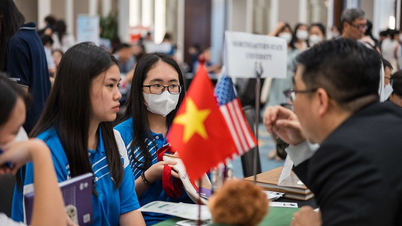










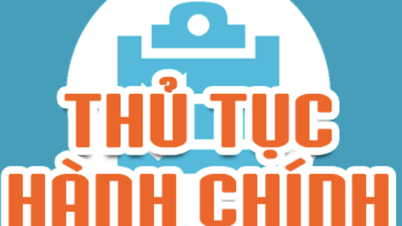













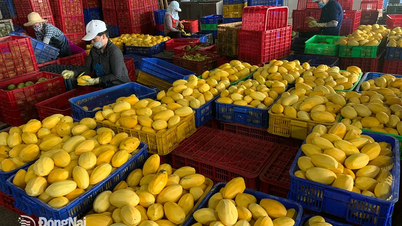








Comment (0)